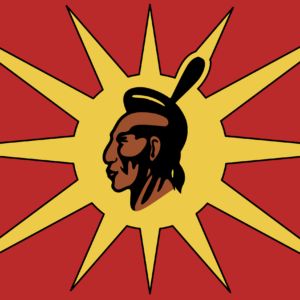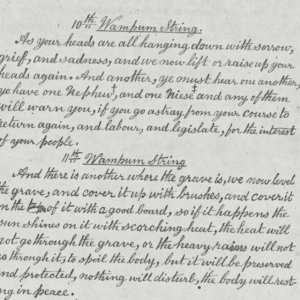
Crown Land is a 17th Century concept whereby certain lands and all derived from it are claimed to be subject to the ownership, jurisdiction and will of the British Monarch.
Contrary to deliberately false history, the legal concept of Crown Land was first created in 1673 with the conveyance of absolute (Allodium) legal title to the members of the Temple, representing the Island of Britain and the temple of New Jerusalem, in exchange for the conveyance of all rights of equity to the Crown Estate (“the Crown”) in perpetuity:
- In 1707, the America Trade Act (1707) 6 Anne c. 39 of Queen Anne in reorganizing and attempted uniting of the former plantations as New England followed the open-ended claim of all the Americas as Crown Land and therefore part of the Crown Estate; and
- Similar to the American colonies, the British colonies in the Caribbean, Asia and Africa were reorganized as Crown Land and part of the Crown Estate; and
- In 1760, King George III (1760-1820) upon assuming the throne surrendered the Crown Estate to Parliament and therefore all its debts and obligations in exchange for a fixed annuity of £800,000 per annum and direct retention of certain key estates and their revenues such as the Duchy of Lancaster; and
- In 1793, George III repeated the same surrender of Crown Estate and lands of Ireland to Parliament , the Duchy of Cornwall, Crown Land is a 17th Century; and
- From 1810 until 1924, the Parliamentary official responsible for administering the Crown Lands and Crown Estate was the Commissioner of Woods, Forests and Land Revenues; and
- From 1924, a group of commissioners called the Commissioners of Crown Lands, headed by a Chairman, replaced the previous structure; and
- From 1961, a statutory corporation known as the Crown Estate was incorporated to enable the Monarch to manage an extensively owned property portfolio estimated in 2012 to be valued in excess of £7 billion; and
Under the concept of Allodium Land Title and therefore Crown Land, the word “land” legally refers not only to the soil, but all tenements on top of it as well as all that is produced from the soil, including people. Therefore Crown Land Title claims all those born on the soil are the absolute property of the holder of such Crown Title, not as slaves but as goods and as less than animals.
The claim of what constitutes legally and legitimately “Crown Land” is itself subject to dispute and without firm custom, but is based loosely on a formal legal argument:
- That no “evidence” of enhancing or adding value to the land or permanent indigenous settlement was present prior or at the time of official royal claim and proclamation; or
- That no clear form of law of the land, land rights or clear chain of title existed with any indigenous communities, nor clear examples of surveys or maps; or
- That the indigenous people surrendered their rights in treaty, or were defeated in formal battle for such rights; and
- A post was placed, along with a flag and proclamation read in the language of the indigenous people claiming the land for the Crown and no argument was received in rebuttal of such a claim; and
- A royal surveyor representing the body of the Monarch visited the land and named its features, walking and defining its boundaries without challenge.
In the case of New Zealand and parts of Canada and the United States, the indigenous people themselves were recognized as sovereign without claiming Crown Land, yet since such treaties, Crown Land has been falsely and illegally presumed in defiance of alleged original law.
In the case of Australia, no attempts were ever made in the first 60 years to legitimize the claims of Crown Land until the false 19th Century argument that the lands were “uninhabited”. Since then, the Crown has successfully avoided having its illegitimacy challenged and all claimed based on Crown Land dissolved.
Since the beginning of the 20th Century, Crown Land has increasingly been managed by corporations still presenting themselves as estates subject to fiduciary obligations.
Despite many former British Colonies repudiating the claims of Crown Land, the parliamentary and judiciary classes have remained prepared to continue to agree to the implied presumptions of land and ownership, jurisdiction and control.
As all claims of Crown Land are based on the fraud of Allodium Land and the deliberate fraud of the Four Inns of Court and the Parliament of England and Great Britain, all Crown Land claims and title are hereby null and void from the beginning.







That is a very well written piece of journalism. In a nutshell, as I have been saying, CROWN LANDS belong to us ! It is good that someone else not only points it out but that he too backs it with actual references..